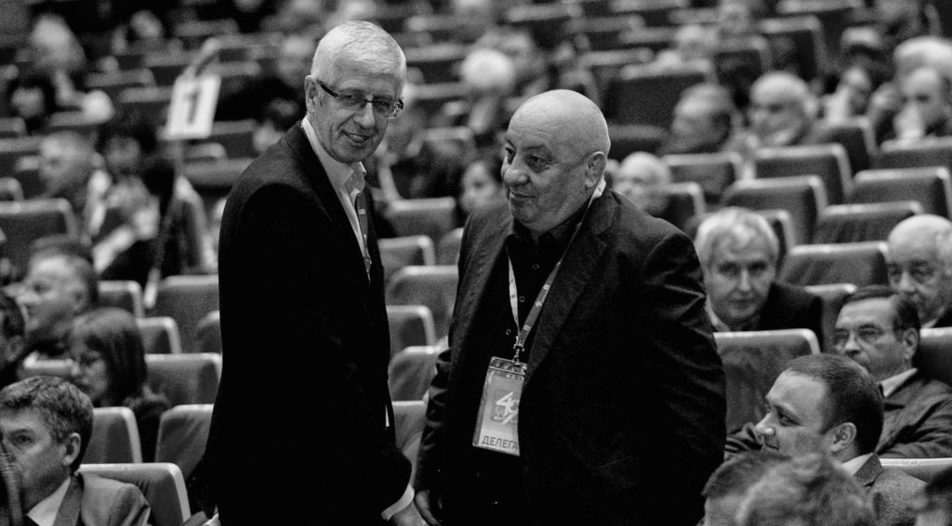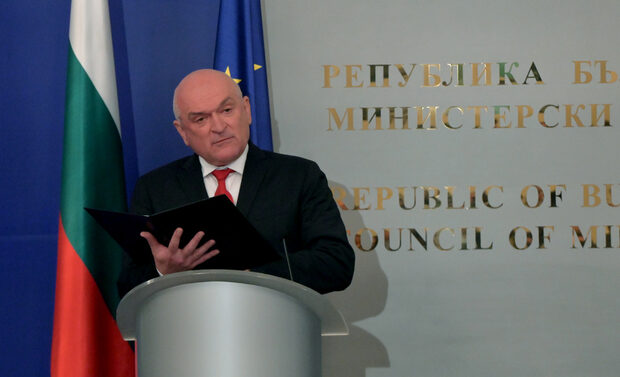In the span of a week in May 2016, two events shook the political left in Bulgaria. First, the largest left-wing force, the Bulgarian Socialist Party (BSP) elected a new chair - Kornelia Ninova. She was seen as a more energetic and confrontational substitution to the outgoing leader Mihail Mikov and, more importantly, she seemed more open to the prospect of bringing back together the fragmented left. Secondly, a day after her appointment, the offshoot party of ex-BSP chairman and ex-president of Bulgaria Georgi Parvanov, Alternative for Bulgarian Revaival (ABV), decided to leave PM Boyko Borissov's coalition government.
Analysts saw in these events a potential push towards a grand left-wing coalition which would tackle the dominance of GERB on the political landscape. A couple of months later these expectations would seem ill-founded.
Hopes for unity
At first, though, there seemed to be substance behind this prognosis. After both leaders visited Moscow and attended Vladimir Putin's United Russia party conference, Mrs. Ninova invited Mr Parvanov to talks for a joint nomination for the upcoming presidential elections in November. Another renegade Socialist-turned-corruption-fighter joined the talks - Tatyana Doncheva, leader of Movement 21 (D21). Although D21 and ABV have limited electoral support (Mrs. Doncheva's party didn't pass the 4% threshold to enter parliament in 2014 and only received 1.9% of the vote, whereas Mr Parvanov's ABV won only 4.15%, compared to BSP's 15.4%), their leader are both considered charismatic by the left-leaning electorate and are able to scrape votes off the mainstream Socialists.
The talks between the three parties yielded mixed results. Mrs. Doncheva pulled out quickly, arguing that BSP only wanted her blessing for the presidential candidate they planned to put forward - the ex-commander of the Bulgarian Air Force Gen. Roumen Radev. Mr Radev, a US-educated apolitically-looking officer was seen as the perfect balancing figure among the left-wing parties. He took a staunch stance against the government policy to invite NATO to conduct air-policing of the Bulgarian skies instead of using solely the country's own outdated Air Force and seemed to be a "tough guy" who would make PM Boyko Borissov himself stand for president. The left-wing parties saw this option as an opportunity to stir disarray in the governing centre-right coalition and take advantage of the changes in the balance of power that would ensue from the abandonment of the prime minister's post by Mr Borissov.
Internal bickering
The joint efforts of the left-wing parties hit rock bottom in August just days after Mr Radev was formally endorsed by both BSP and ABV. At a surprising press conference BSP's Mrs. Ninova announced that the party would withdraw from the negotiations with ABV and she wouldn't allow Mr Parvanov to "twist her arms" and Mr Radev became the formal nominee of BSP. After Mr Parvanov's ABV party recovered from the shock, it nominated former labor minister in Borissov's government and MEP Ivaylo Kalfin for President. Mr Kalfin had already run against incumbent president Rossen Plevneliev and lost by a margin of just 5% in the run-off of the 2011 elections. The reason for Mrs. Ninova's move remains largely obscure but it shows that the left remains focused mostly on itself and too preoccupied with its internal rivalries and personal vendettas to build a coherent opposition to the GERB-dominated government. Mr Parvanov's aim was to join hands with BSP and present ABV as an equal partner, despite the lack of electoral weight. Mrs. Ninova wanted to prevent this, as she saw Mr Parvanov's move as a prelude to an attempt for a takeover by the ex-chairman. By uniting the core of BSP around Mr Radev, Mrs. Ninova hoped to make ABV redundant in the long run.
Polling results from Alpha Research show that having three nominees of left-wing parties (Mr Radev, Mr Kalfin and Mrs. Doncheva) will muster the votes of the core electorate of those parties, but it may also split the left-wing vote. This, in turn, would decrease the chances of any of the three candidates to make it to the second round of the elections.
*Martin Dimitrov is reporter with Capital
In the span of a week in May 2016, two events shook the political left in Bulgaria. First, the largest left-wing force, the Bulgarian Socialist Party (BSP) elected a new chair - Kornelia Ninova. She was seen as a more energetic and confrontational substitution to the outgoing leader Mihail Mikov and, more importantly, she seemed more open to the prospect of bringing back together the fragmented left. Secondly, a day after her appointment, the offshoot party of ex-BSP chairman and ex-president of Bulgaria Georgi Parvanov, Alternative for Bulgarian Revaival (ABV), decided to leave PM Boyko Borissov's coalition government.
Analysts saw in these events a potential push towards a grand left-wing coalition which would tackle the dominance of GERB on the political landscape. A couple of months later these expectations would seem ill-founded.












